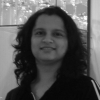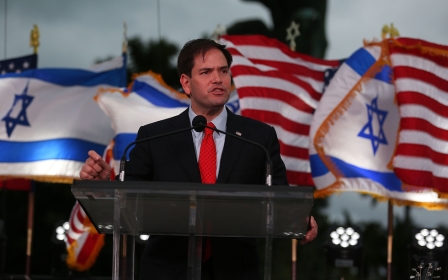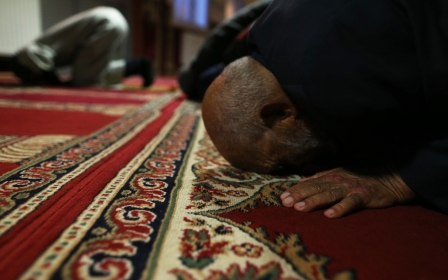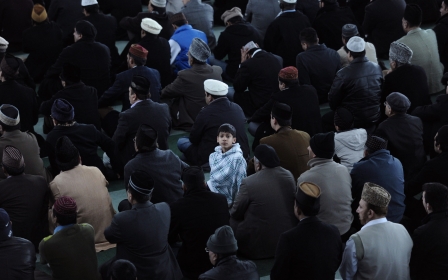After Paris terror attacks, an urgent need to prevent hate crimes
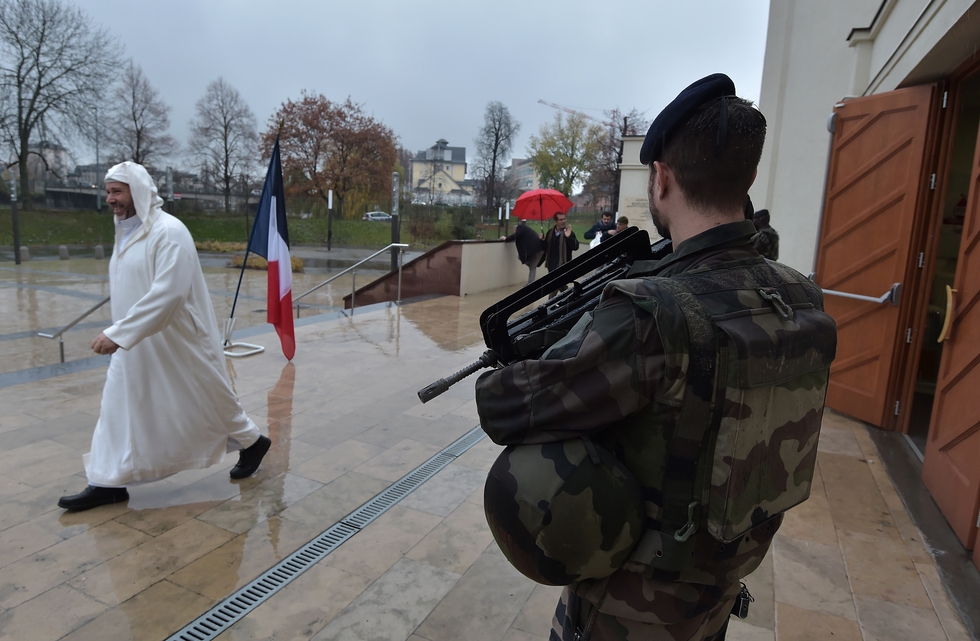
Whether it's the Paris attacks of 13/11, New York in 9/11, or Mumbai 26/11, terror attacks have always led to a backlash that their perpetrators no doubt see as simply collateral damage - ordinary Muslims across the world being targeted in hate and revenge crimes.
Post 9/11, Muslims in the United States lived in fear for a long time as hate crimes surged. In the immediate years since 9/11, hate crimes against Muslims in the United States grew over five times. Recently, the FBI noted that the overall number of hate crimes in the United States in 2014 was lower than in previous years. Against all ethnic groups except Muslims, that is.
Just last week, a young Muslim woman wearing a headscarf was punched and hit with a box cutter in Marseille because her attacker concluded that she was a "terrorist". A social media post from a young Londoner, Ashley Powys, went viral this week as he recounted how he had defended a young Muslim woman dressed in a hijab from abuse from a commuter in the train. The girl looked visibly shaken, Powys noted, as the commuter called her "terrorist" and "scum", and continued hurling racist abuse until Powys intervened to ward him off.
The irrational hate and dangerous ignorance of those who would carry out a "revenge killing" haven't been limited to Muslim victims. The hate encompasses anyone looking "similar" enough to jaundiced eyes.
In a case that made headlines all over the world soon after 9/11, 31-year-old Erika Menendez killed a young man named Sunando Sen by pushing him in front of a moving train in New York City. When arrested the following day (she was spotted on the security footage), she said she killed him to avenge the 2001 terrorist attacks in the United States. In her statement to the police after her arrest, Menendez said she blamed both the Muslim and Hindu communities (the victim, Sen, was a Hindu) for the 2001 attacks. She added that she had been "beating them up" ever since 9/11.
Then there are the Sikhs in the United States, often mistaken for Muslims and consequently victims of unjust hate targeted at the latter. In September this year, Sikh American Inderjit Singh Mukker was called "terrorist" and "bin Laden" and beaten unconscious. The assault was just another one in a long list of hate crimes against the community. Clearly, hate and bigotry exclude any semblance to rational thought or fairness.
Violence unleashed
Mumbai, the city where I was born and raised, is no stranger to communal violence, terror attacks or the resulting crimes, as opportunistic politicians whip up the necessary hate for a terrible backlash. The demolition of the Babri Masjid mosque in 1992 and the bomb blasts in retaliation by Muslim gang-lord Dawood Ibrahim led to the carnage of communal riots as Hindus and Muslims clashed, with hundreds of innocent lives taken in the deadly back-and-forth dance of violence.
When a fringe section of a community is the perpetrator of a crime, it becomes easy for hate-mongers and the disenchanted to target innocents of the said community. Also, men with an inherent blood lust suddenly find a platform for justifying their heinous tendencies. In cities such as Mumbai and elsewhere, leaders with fundamentalist agendas, religion no bar, manage to whip up just enough support to be deadly when the blood lust strikes them. Politicians from every part of the world, it seems, have recognised the inherent potential of religion to divide and conquer.
It is therefore imperative that the more liberal, rational voices make themselves heard and stop blame from being apportioned to the innocents of any one community.
Haven’t we all seen seemingly well-read and well-educated people express bottomless anger against a whole religion on platforms such as Facebook or Twitter, where being incendiary is so much easier than in voicing such thoughts person to person?
A call for discernment and moderation in expressing one's views online and in "real life" is the urgent need of the hour. Fortunately, there are a number of sane voices too, calling out bigots and haters. But their tribe needs to increase if we all want a truly secular, peaceful world.
In the United States, India, Pakistan, and everywhere else, ordinary Muslim citizens have time and again made it clear that they denounce the violence perpetrated by organisations such as the Islamic State group and al-Qaeda. For those that see this as mere lip service, they would do well to ask themselves: would millions of ordinary Muslims really work hard, get married, raise children, dream dreams in a foreign land, while all the time secretly working against the very communities that surround them? Do they really seem to have nothing on their agenda other than to destroy the very cities and towns that have supported them?
The parents of the 13 November Paris attacks mastermind Abdelhamid Abaaoud were reportedly shocked that their son had attacked the very continent where their family had prospered. Is it such a stretch of imagination to believe that most people would rather focus on their own lives than on destroying others?
Better - and smarter - not to hate
Here are a few more questions for all the seemingly well-read and well-educated people who call for the subjugation of an entire community: how do you see these continual online and offline attacks playing out in the long run? Isn’t it counter-productive as you alienate and single out people from one community, the very people who ordinarily would have condemned the terror attacks as much as you?
What happens when more and more innocent people feel alienated and disenfranchised? Isn’t it just smarter to appreciate their predicament, as many rush to put blame at their feet? For one minute, forget about the call to be more inclusive. It’s really just plain dumb not to recognise the harm done by racism. Hate crimes only perpetuate the cycle of hate. Discerning who the perpetrators really are and protecting innocents from them is what will really help you save the lives of other people, including perhaps your own loved ones.
Positive, firm measures by authorities against hate attacks, such as the ones taken by Scottish police, go a long way to ensuring greater awareness and further easing of communal tension. Scottish police warned citizens against hate crimes, saying these crimes will not be tolerated, and have empowered citizens who witness hate attacks to report them to the police. Stricter hate-crime legislation, combined with tenacious efforts to promote an appreciation and respect for diversity, may one day eradicate hate attacks.
People are grieving, and in the time of grief it is easy, and may even seem like a necessity (but isn't), to find a handy person or community to blame. Winning over that urge is what makes us civilised. More than that, it makes us human.
-Bhakti Mathew is a freelance journalist based in Oxford, UK. She has previously written for Marie Claire USA, Business Standard, CNN.com and South China Morning Post.
The views expressed in this article belong to the author and do not necessarily reflect the editorial policy of Middle East Eye.
Photo: A French soldier stands guard in front of the Great Mosque during the Friday prayer on 20 November, 2015 in Strasbourg, eastern France (AFP).
New MEE newsletter: Jerusalem Dispatch
Sign up to get the latest insights and analysis on Israel-Palestine, alongside Turkey Unpacked and other MEE newsletters
Middle East Eye delivers independent and unrivalled coverage and analysis of the Middle East, North Africa and beyond. To learn more about republishing this content and the associated fees, please fill out this form. More about MEE can be found here.


